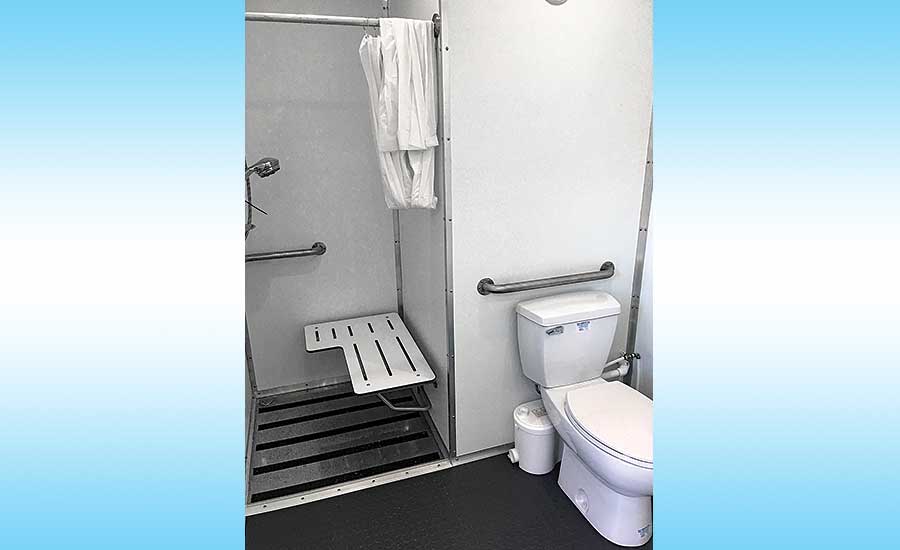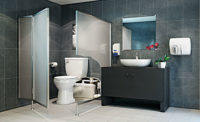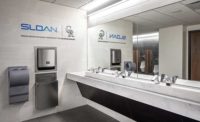Danica Fong-Shoji and her husband, Craig Shoji, count themselves as “just regular people.”
But they routinely do something quite extraordinary — not just once in a while, but several times a month — by way of caring for the less fortunate in their community.
Each week, they drive a specially equipped mobile trailer into an area of Honolulu with a concentration of homeless people. Once they arrive, they open the trailer to all comers, offering each guest the simple, everyday pleasure of taking a shower.
The outings typically commence in the late afternoon, lasting around two hours — perhaps longer if the Shoji couple and their volunteer helpers also offer a warm meal as part of their hospitality. By evening’s end, up to two-dozen grateful people will be able to clean up in an equally clean and private setting, presumably departing the premises in a much better frame of mind than when they arrived.
“When our guests take a warm shower, they tell me they feel ‘human’ again,” says Craig, who with Danica launched “Refresh + Revive” as a 501(c)(3) non-profit organization in November 2018.
Danica notes their guests often marvel at how a simple warm shower leaves their skin tone so much brighter. “They cannot believe how much dirt comes off, even though they regularly take cold showers in a nearby park,” she says.
Besides the comfort and hygienic benefits of warm water, the guests also enjoy the privacy that the Shojis provide in their “mobile hygiene center.”
Measuring roughly 22 feet long and six feet wide, the vehicle is divided into three separate bath compartments, each holding a shower, a sink, a toilet, and — last, but not least — a door. Given the exposed and vulnerable lives most of these people lead, they may well cherish the latter amenity as much as the other three. A guest steps into one of three compartments, shuts the door and has the 5.6-foot by 6-foot room to themselves for 15 minutes (30 for a disabled person) to get clean and reinvigorated.
Privacy, warm running water, clean towels and fresh toiletries (furnished by a local hotel and other donors), “these are the basics my husband, daughter, son and I, as well as our friends, take for granted, all because we have our own homes where we can take a hot shower whenever we like,” Danica notes.
Which is why, when Danica and Craig wondered not long ago how they might best help the houseless on the Hawaiian island of Oahu, the notion of a free shower made perfect sense.

Ensuring a Quality Experience
The key to the mobile showering service is, of course, the vehicle, made by Comforts of Home Services, an Aurora (Chicago), Illinois-based fabricator of specialty trailers for private events, construction projects and anywhere else temporary facilities are needed.
Comforts of Home’s engineering team equipped the trailer with two “conventional” bathrooms that rely on simple gravity to drain black and gray water from their sinks, showers and toilets into a 400-gallon storage tank attached beneath the trailer. The third shower room is ADA-compliant and features a ramp for wheelchair accessibility.
The toilet and shower in this third compartment “sit at a lower level than the waste tank beneath the vehicle,” according to Comforts of Home general manager Aaron Ward. As a consequence, waste must be pumped up to the storage tank. To perform that task, Comforts of Home installed a Sanibest Pro grinder system from Saniflo USA.
The company uses the Sanibest Pro for all its handicap-accessible trailers, Ward explains, “because it’s a heavy-duty grinder system, able to handle any kind of waste, including sanitary products accidentally dropped into the toilet bowl. We have installed hundreds of the Sanibest Pro systems, and we are extremely happy using them for our trailers. They work incredibly well. Not only have they saved us time on installation, but — most important of all — they also help ensure our customers have the best experience with our trailers.”
Once an event ends, the Shojis transfer the contents of the trailer storage tank to a second vehicle they must bring to every outing: a vacuum pump truck capable of holding 900 gallons of black and gray water. This vehicle is then hauled to a local treatment facility to unload the waste.
“In Hawaii, we don’t have the same options as folks on the mainland,” says Craig Shoji, who notes the two vehicles required an outlay of about $145,000, which was funded by grants and donations.
“We cannot simply discharge 900 gallons of wastewater into the closest storm drain,” he continues. “Here, if you do that, it goes straight into the ocean, which is not permitted.”
Despite these and other complications, the couple fully expects to expand their fledgling venture by doubling the monthly event frequency to eight in an effort to reach even more people. The current trailer will handle that additional activity, notes Danica, but they would like to add a second vehicle to offer laundry services with a mobile washer and dryer.
‘What Can We Do to Help?’
Danica recalls a time not too long ago when she wasn’t so confident she would be comfortable working with the homeless. “But we quickly learned that, for the most part, they are just regular people like us and our friends.
“We can sit here and grumble about these people, how they are taking over our streets and our parks,” she continues. “There’s no doubt that their situations impact everyone in our community. So what can we do to help them?
“We are Christians. We answered that question four years ago by taking a leap of faith.”
That leap has enabled the Shojis to overcome the various challenges and struggles their social outreach inevitably entails, while making their Oahu community, in the end, a little more livable and a little more friendly.




